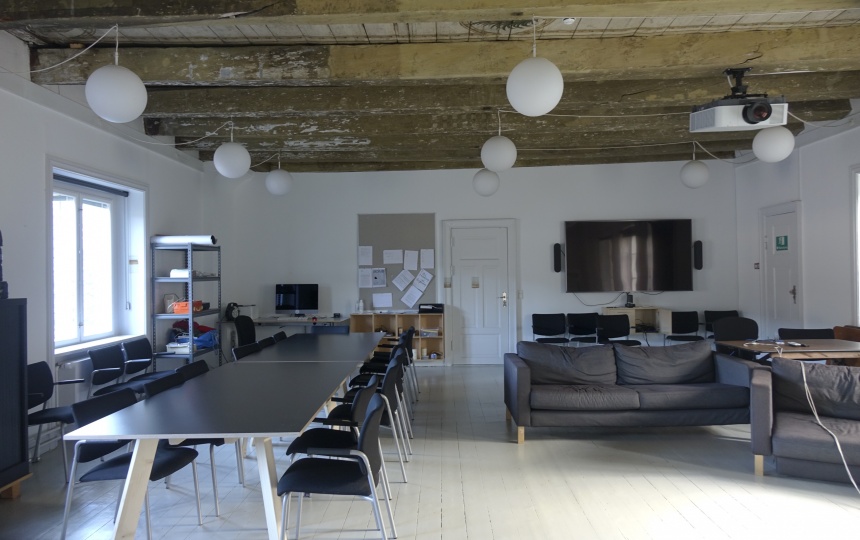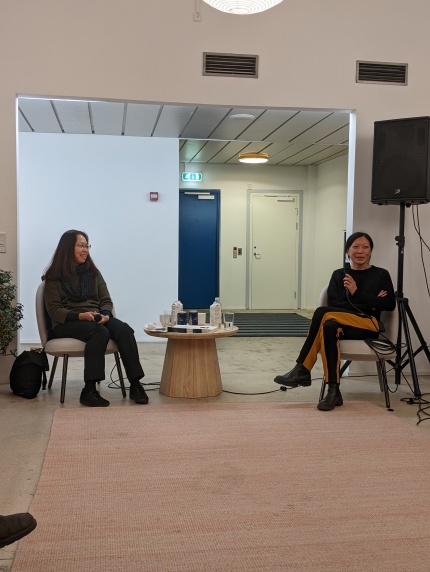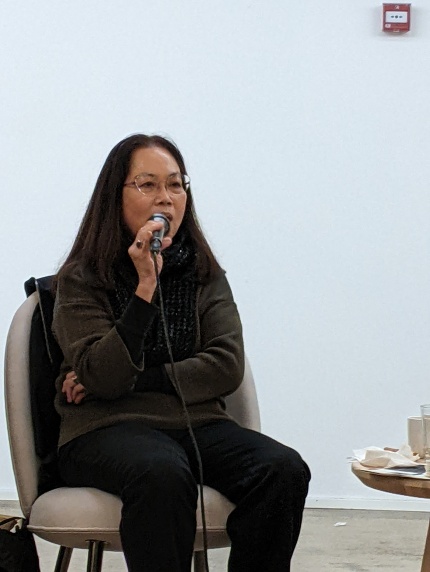Profile of the School of Media Arts
While the rapid development of technological infrastructure, deterritorialized access to knowledge and new possibilities for horizontal organisation have enabled the formation of communication channels across cultural and geographical boundaries, they have also reproduced, or even reinforced pre-existing social hierarchies and in return led to disinformation, new surveillance methods and the catastrophic extractivism of data and natural resources. This paradoxical landscape not only reconfigures paradigms of knowledge, social relations and our orientation in space and time, but also re-defines the ways in which we see, hear and feel: the domain of art and culture.
Changing perceptions of what constitutes public and political spheres and an increased awareness of how we are intertwined and mutually conditioned also raise questions of subjectivity, body politics, authorship and inter-species connectivity, while calling for alternative imaginaries. Within this vastly entangled reality of overlapping timescales, in which a plethora of technologies, tools and approaches are at our disposal, media artists have a special role and responsibility towards society by researching, responding to, questioning and intervening in pre-existing power structures, social and cultural inequalities, crumbling infrastructures, effects of globalisation, the unfolding climate catastrophe, the collapse of political institutions and forms of social unrest.
The Field of Media Art
The field of Media Art comprises a range of media including film, video, installation, sound, immersive and virtual realities, and performative practices. It is articulated at the intersection of a wide range of disciplines, including, but not limited to media theory, philosophy, anthropology, history, linguistics, psychoanalysis, information theory, cybernetics and sociology.
The mnemonic function of Media Art and its engagement with time and temporality direct attention to the politics of memory, revisions of history, mapping our radically shifting realities, and proposing alternative visions and imaginaries. It propels the artist and the viewer to position themselves in relation to the past, the present and the future.
Media Art’s engagement with technology provides insights into contemporary societal structures, driven by the flow of information and information-driven labour. It evokes critical perspectives in regard to the social and political ramifications of media and technology.
Media Art’s synesthetic and multi-sensorial properties, involving image, sound, rhythm, gesture and affect facilitate engagement with several intersecting emotive, sensorial, cognitive and reflexive registers.
The capacity of Media Art to configure unconventional modes of storytelling stimulates the imagination and allows for alternative knowledges, socialities and modes of representation to surface.
The engagement of Media Art with communication processes serves as an opportunity for examining the influence of an artwork on a viewer, facilitating a dialogical relationship with the viewer.
Education at the School of Media Arts
The educational environment at the School of Media Arts is based on a culture of participation and dialogue, a commitment to artistic research, critical inquiry, and mutual respect and recognition of a diversity of practices, positions and trajectories. The curriculum is based on a combination of studio visits, group critiques, practical and theoretical workshops, topical seminars addressing the genealogies of Media Art, contemporary cultural theory, philosophical perspectives, together with reading groups, discussions and presentations by invited artists and lecturers, study circles, interdisciplinary collaborations, site visits and excursions. This enables students to develop and refine their artistic practice through experimentation, constructive feedback, material and theoretical elaboration, and awareness of how their artistic practice and works enter into dialogue with diverse publics and resonate within a broader field of art and social concerns.
The teaching language at the School of Media Arts is English.
Jane Jin Kaisen
Utilising time-based media as means of artistic expression, how do we position ourselves in relation to time and space? What genealogies and stories do we invoke to navigate by? What are the mediating capacities of the body and what insights may be drawn from minoritarian perspectives and non-anthropocentric knowledge systems? What aesthetic tools can we use to address the complexities of our times and pose alternative visions and imaginaries by asking: ‘What other worlds are possible’?
With a commitment to foster and encourage each student´s unique talent and vision, thereby facilitating the development of articulate and sustainable artistic practices, experimentation, enhancement of material sensibility, encouragement of artistic research, a self-reflexive attitude towards the social, cultural and political dimensions of art, interdisciplinary inquiry, and the global exchange of ideas are paramount.
The School of Media Arts
The School of Media Arts
Master program in media arts
Address
The Royal Dansih Academy of Fine Arts, Schools of Visual Arts
Kgs. Nytorv 1
1050 Copenhagen
Staircase E, ('Den Italienske Trappe'), 2. floor
PROFESSOR
Jane Jin Kaisen
Staircase E, ('Den Italienske Trappe'), 2. floor

Jane Jin Kaisen
ProfessorJane Jin Kaisen (b. 1980 Jeju Island, South Korea) lives and works in Copenhagen.
Her artistic practice encompasses video installations, film, photographic installations, performance and writing. Working with non-linear modes of storytelling and poetic montages of image, sound, voice, and archive, she engages themes of memory, migration, and translation at the intersection of personal and collective histories.
She holds an MA from The Royal Danish Academy of Fine Arts, an MFA from University of California Los Angeles and participated in the Whitney Museum of American Art Independent Study Program. She is a recipient of a PhD scholarship in artistic research.
Kaisen has been an invited lecturer and guest teacher at the art academies in Denmark, University of California San Diego and, Städelschule, Yonsei University, International Academy of Art Palestine, and MASS Alexandria, among others.
Kaisen represented Korea at 58th Venice Biennale in 2019 and has participated in the biennials of Liverpool, Jeju, Gwangju, among others. Recent exhibitions and screenings include the Museum of Contemporary Art Los Angeles, Palais de Tokyo, Times Art Center Berlin, Haus der Kulturen der Welt, Berlin International Film Festival, ARKO Art Center, Leeum Samsung Museum of Art, Asia Culture Center, ParaSite and Kunsthal Charlottenborg, Copenhagen.




